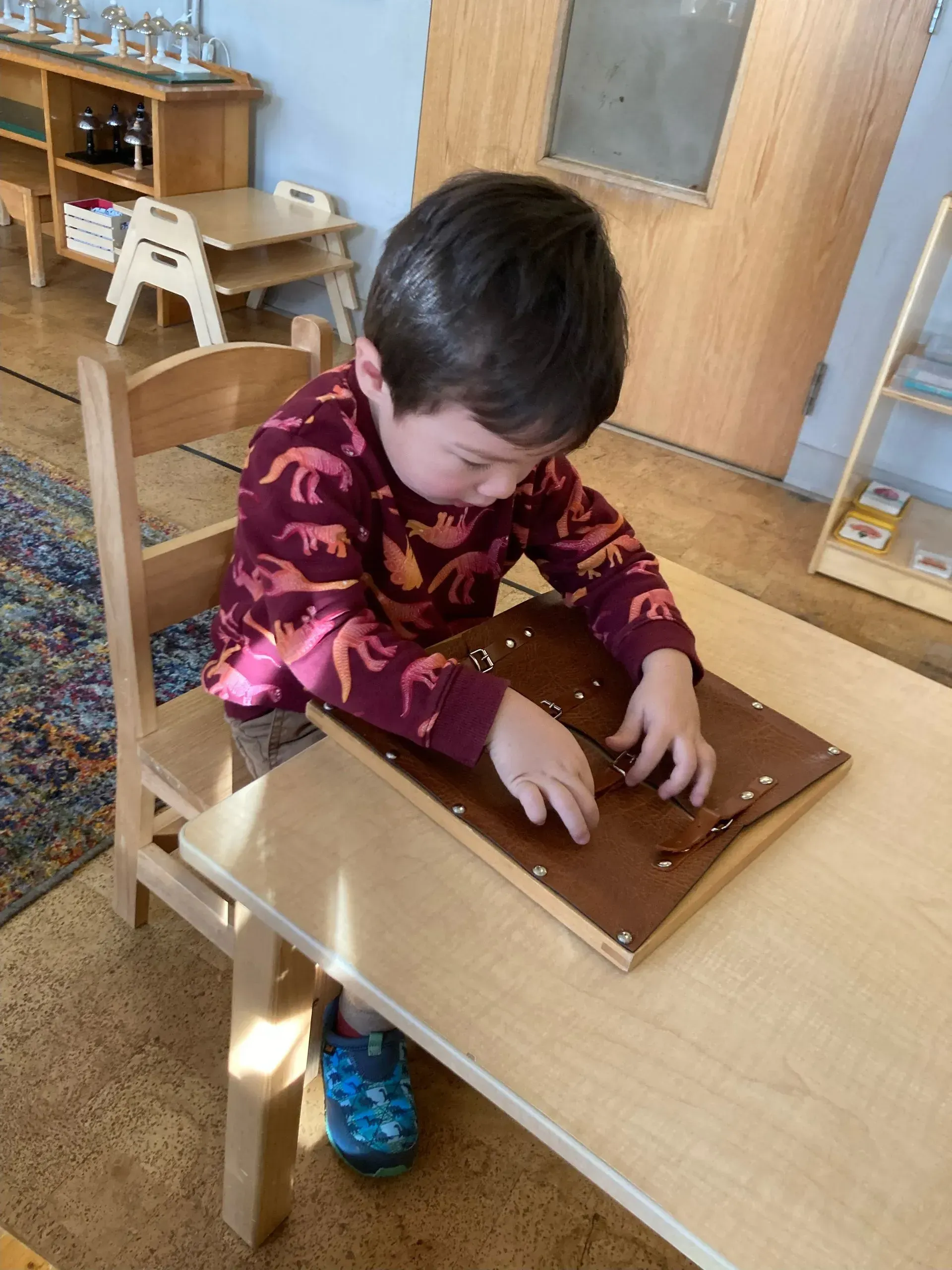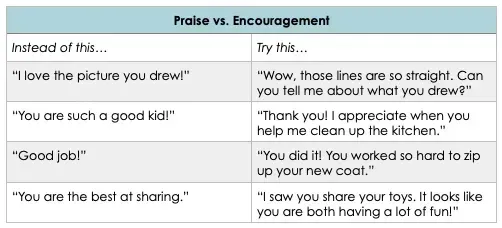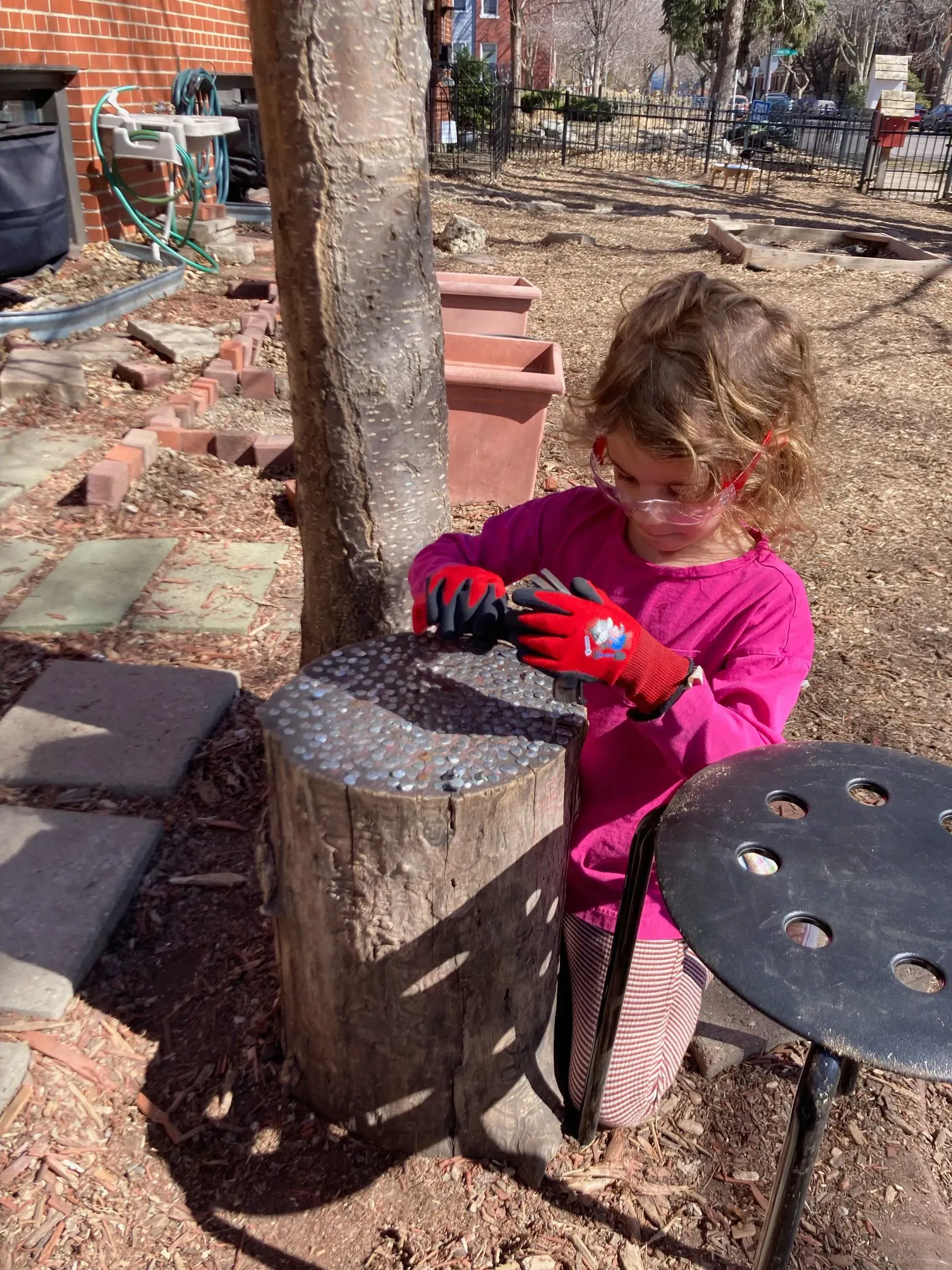
Independence is a critical aspect of the child’s developmental process. In the first six years of life, the child strives towards functional independence, which is the capacity to care for one’s self and environment, for example: to eat, to use the toilet, and to dress.
Montessori environments are purposefully prepared to serve the child’s drive towards independence by offering children child sized, functional materials to explore and practice skills (like tying a bow, washing hands, polishing a mirror) and time and space to work through processes that may be simple to us, like using the toilet and putting on shoes. It’s also helpful to remember that the cultivation of independence is not linear and cannot be forced. One day, a child may be able to put on their shoes and the next they can’t! And that is normal! These acquisitions ebb and flow and all we can really do is try to meet the child where they are at that moment—do they feel sick, tired, distracted, do they need motivation, or maybe do they just need us to do it for them today? It can be very freeing to remember that as adults we cannot control a child’s developmental force or their interest, but rather we can work to provide a safe and interesting environment for them to practice and cultivate these acquisitions in a joyful way!
Kate




